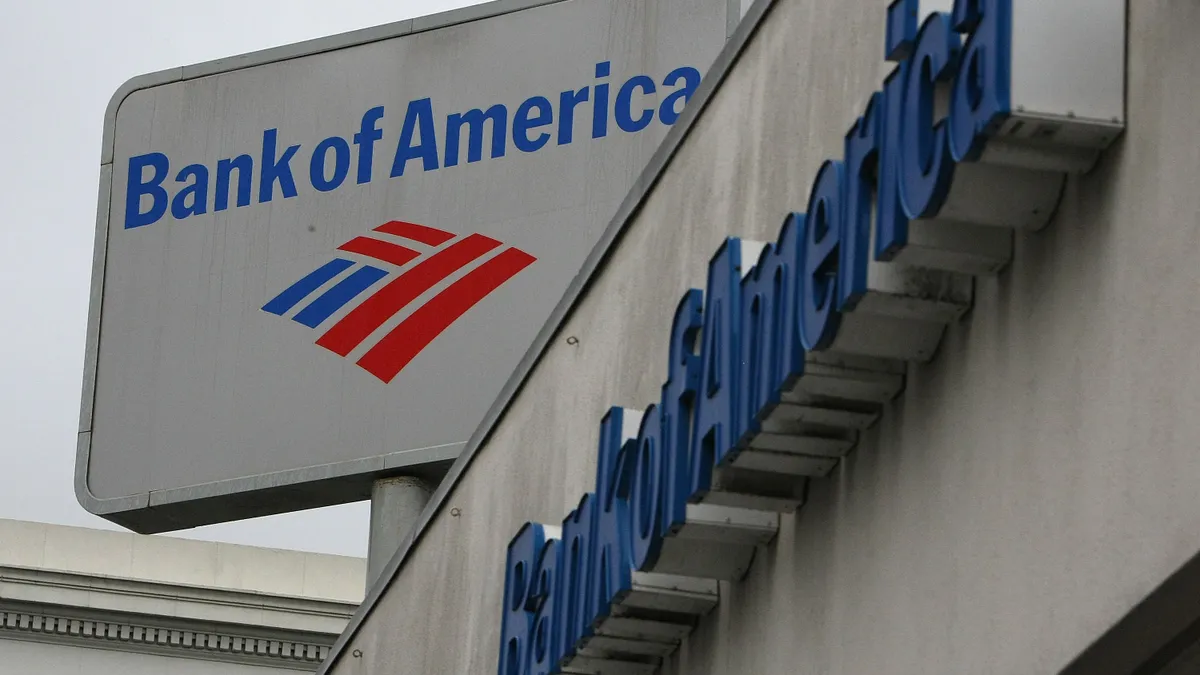Dive Brief:
- JPMorgan Chase, Bank of America and Wells Fargo are in advanced discussions to create standardized refund procedures for customers scammed through Zelle, the bank-owned peer-to-peer (P2P) payments network, unnamed sources told The Wall Street Journal.
- The new refund rules are aimed at boosting security and trust in the platform, sources told the Journal. Zelle is owned by a consortium of seven of the nation’s largest banks and operated by Early Warning Services.
- The effort comes as lawmakers have zeroed in on Zelle in recent months, accusing the platform’s owners of creating a payments network that is rife with fraud, and not doing enough to refund customers duped into sending money to scammers.
Dive Insight:
Under new rules being discussed, banks would share liability inside Zelle’s system for customers who are scammed, and guarantee to reimburse one another, sources told the Journal.
A customer who is tricked into sending funds would receive a refund from the financial institution that houses the deposit account where the money was sent, the sources said.
The banks that own EWS are testing the refund procedure and could implement the rule as soon as early next year, sources said.
The rules won’t apply to customers seeking refunds for goods or services they claim they didn’t receive, or for people whose errant payments are the result of typos, the sources told the Journal.
Once implemented, firms that participate in Zelle would have to comply with the new rules or risk being kicked out of the network, sources said.
More than 10,000 financial institutions participate in the Zelle network, which recorded 1.8 billion transactions in 2021, according to EWS.
During a congressional hearing in September, Senate Democrats pressed the CEOs of the nation’s largest retail banks to answer for scams associated with Zelle, and called for the institutions to implement policies to protect and redress customers defrauded through the platform.
Sen. Elizabeth Warren, D-MA, who has emerged as the platform’s staunchest critic, called the network “unsafe,” claiming Zelle users were defrauded out of $500 million last year.
“You have created a perfect weapon for criminals to use and they have used it and you have not stood behind your customers,” she told the witnesses at the September hearing, which included the CEOs of JPMorgan Chase, Bank of America, Wells Fargo, Citi, Truist, PNC and U.S. Bank. Six of those banks — all but Citi — share in the ownership of Zelle, along with Capital One.
Warren has also called on the Consumer Financial Protection Bureau (CFPB) to bolster regulations governing how banks reimburse scammed customers defrauded on the platform.
But bank trade groups have cautioned the bureau against taking steps that would shift liability for Zelle fraud to banks.
“Shifting liability for payments the customer has authorized and later claims were made to a scammer will harm consumers in the form of higher costs, fewer options, and less competition,” the American Bankers Association (ABA) wrote in a letter to CFPB Director Rohit Chopra last month.
The group also claimed disputes and complaints about P2P payments are uncommon, especially for Zelle payments when compared to nonbank P2P products.
“As noted, 99.9 percent of the 5 billion Zelle transactions processed in the past 5 years were sent without any report of fraud or scams,” the ABA wrote.
EWS, which operates Zelle, did not return a request for comment by press time.















